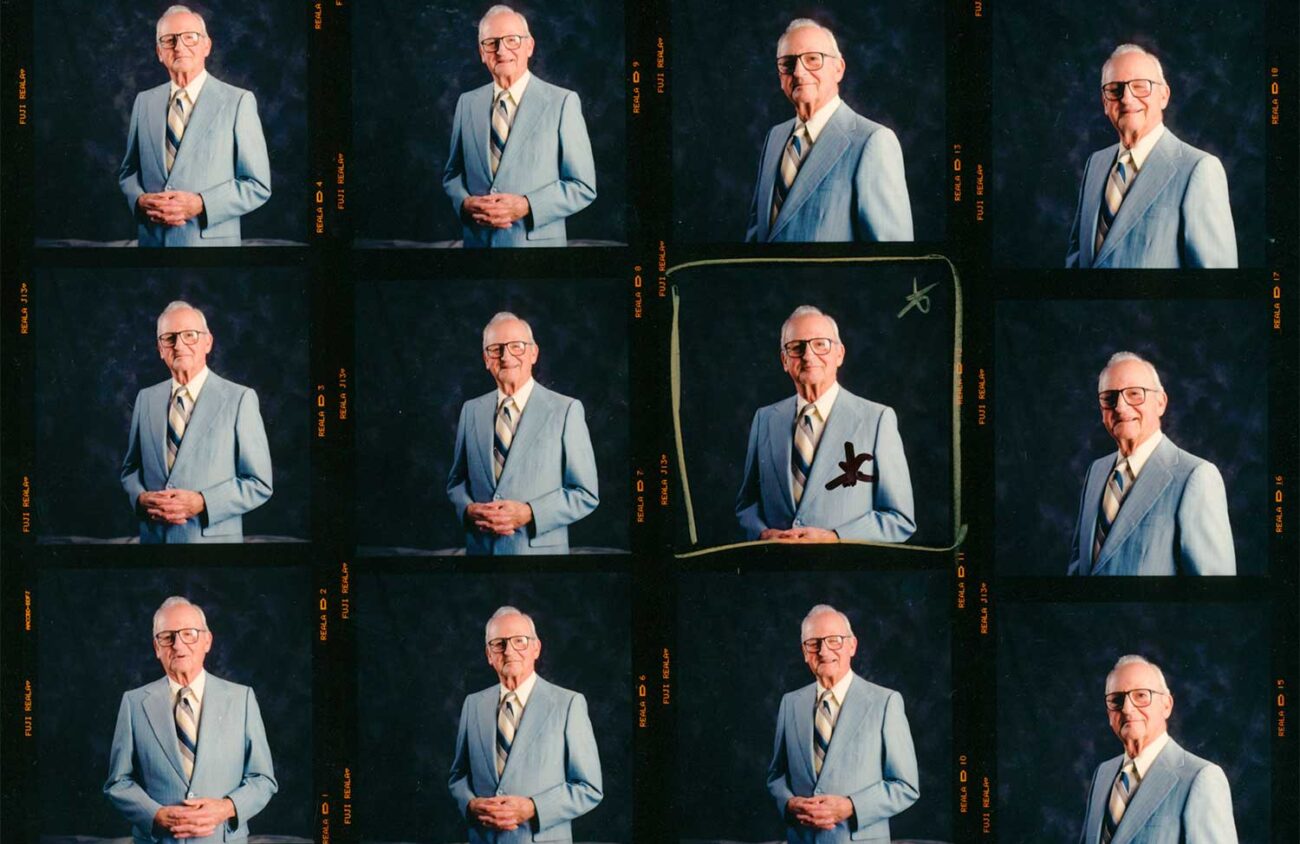On June 29, more than 100 alumni of The Register-Guard gathered in what used to be its offices to spend four hours reminiscing about what the paper and the community it created meant to them.
Back in the day, the RG wasn’t just plugged into the community — it was a community.
“It was very clear that everybody who I came across read The Register-Guard,” says Janet Filips, a former RG news reporter, “and it was informing their lives. If something was going on in their lives that they were concerned about there was an immediate impulse on the part of people to pick up the phone and call The Register-Guard.”
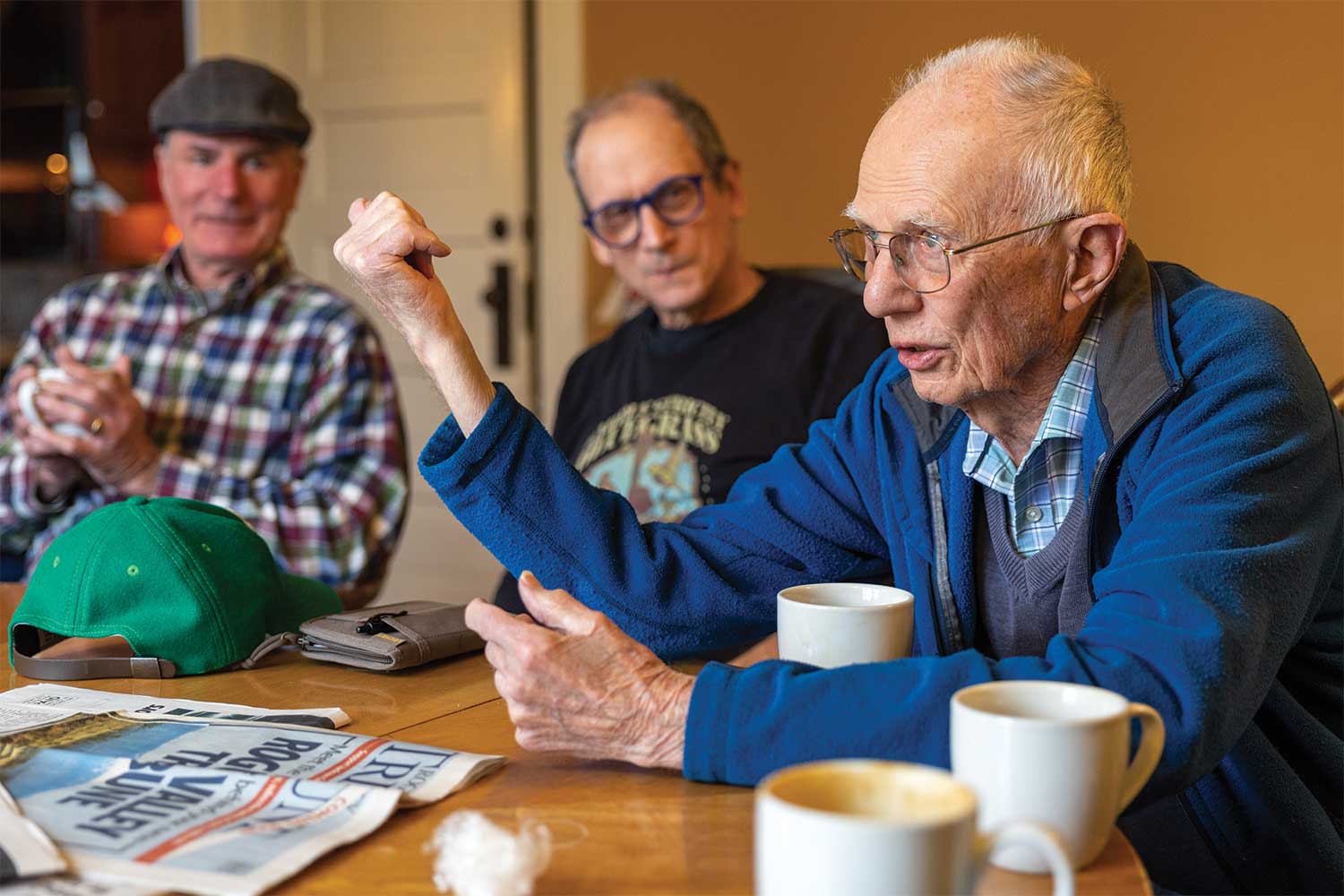
Filips says she could bring ideas to her editors and be encouraged to doggedly pursue them. “There was an openness to new ideas, but such a hard, hard working nature in the newsroom.”
And now that newsroom is a ghost town, filled with construction crews, insurance companies and the Willamette Valley Cancer Institute.
“If you’re standing on that side of the building, looking this way from the freeway, you still see the masthead of The Register-Guard. There’s no other vestige of The Register-Guard left on this building,” said Donovan ‘Don’ Mack, before the gathered former staff. Mack is a member of the Baker family by marriage and former RG reporter and advertising manager who covered “cops and courts” after graduating from UO in 1972.
Working as a backup for Ray Myers covering the police beat, Mack says he was on his way out to Astoria for an interview with the Forrester family — the ownership of the Daily Astorian.
Learning that Myers had just quit, Mack says he “jumped at it,” excited to dive in and get reporting.
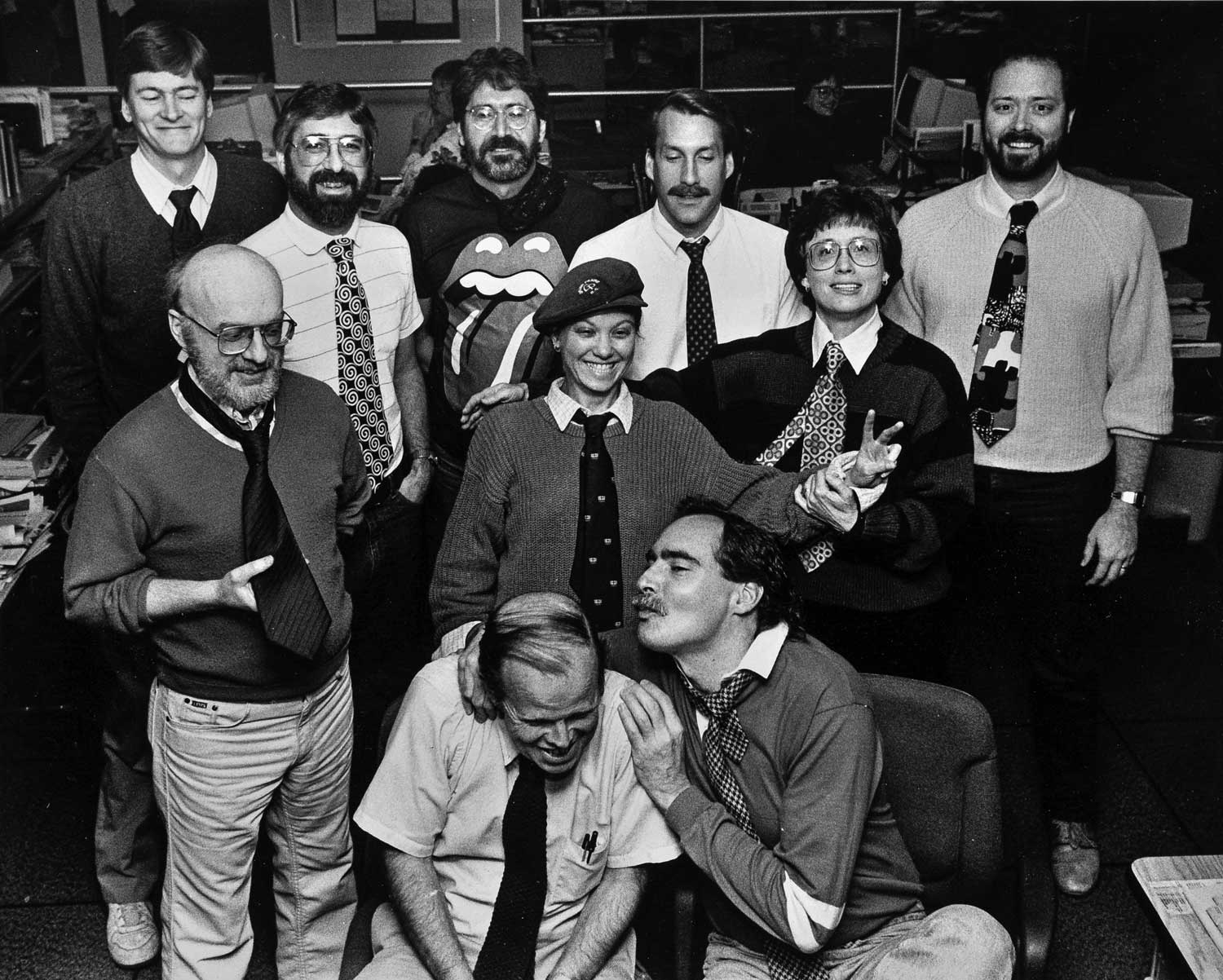
“I have always had a great fondness for my years on the news side at The Register-Guard,” he says. “Some of the most talented journalists I’ve ever encountered worked a year, two years, five years, 20 years at The Register-Guard.”
“Amen,” Mike Thoele, a 24-year-long RG bureau reporter, says in agreement.
Originally planned as a small get-together during dinner conversations between RG alumni Mack, Ann Baker Mack, Mike Thoele and Sandy Thoele — they all quickly realized how big this party would need to be.
The Baker family, after owning the paper for more than 90 years, sold the RG to GateHouse Media in 2018 for an undisclosed price. At that point the RG was still the second largest paper in Oregon. GateHouse merged with New York-City based The Gannett Company in 2019.
Today, the paper is owned by Gannett — the largest mass media holding company in the nation. The media conglomeration operates the USA Today network, which includes 217 daily newspapers and 175 weekly newspapers.
The Register-Guard reaches just a small fraction of readers compared with when it was in its heyday. According to the Oregon Newspaper Publisher Association, in 1999, the RG circulated 74,800 papers.
Just three months before the acquisition by GateHouse in February 2018, the RG had a circulation of 43,663 papers daily.
As of its last published circulation report on July 21, 2023, total paid distribution has dwindled to just over 9,706 papers throughout the week.
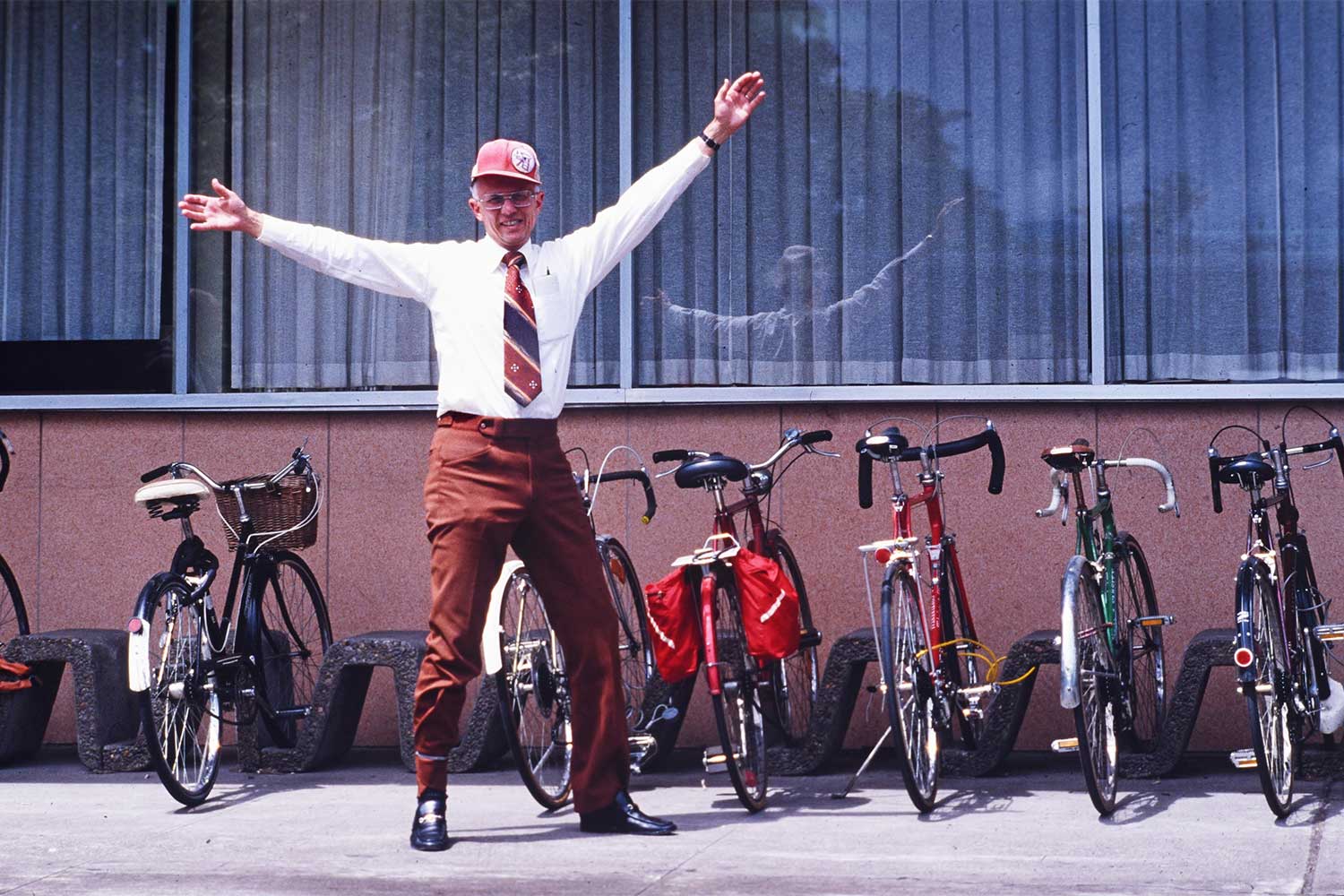
The RG still publishes six days a week with an online-only edition on Saturday.
But it has no local office, no local opinion content and no local printing press — it prints in Vancouver and trucks papers down I-5 to Lane County.,
The old printing press was dismantled and sold for scrap in 2021. There is no evidence the RG existed inside 3500 Chad Drive — besides the flag clinging to life on the building’s exterior.
“There’s no office where an old timer can stop by and have a cup of coffee,” says Mike Thoele, also a published author, a former owner of two papers — Tri-County News in Junction City and West Lane News in Veneta — and a former UO School of Journalism and Communications professor.
Even if the old Guard may not exist anymore, the memory of the paper lives.
In the ’60s, the RG moved to expand its rural coverage with several satellite offices — bureaus — throughout Lane County in Florence, Junction City and Cottage Grove. Mike Thoele worked in the Junction City bureau, doing community coverage on school boards, city coverage and “things like that.”
Stories from the bureaus would run in the city and regional news sections earlier in the day due to the distance factor in its circulation. In the afternoon it would be “replated” with more metropolitan coverage.
“By the ’80s, the bureau system was shrinking,” Mike Thoele writes in an email. “Junction City closed first, then Cottage Grove.”
Rural coverage was extensive. No idea was deemed impossible. “I remember there was a time at The Register-Guard if you were a writer with a gleam in your eye and had an idea, you could probably get a greenlight to do it,” Thoele says.
“I went hitchhiking for a month,” he says. “A really fun story. It was in that period when so many people were showing up on the road. Who are they anyhow? Let’s go find out.”
Ownership closed the bureaus over the past couple decades before the turn of the century, and the current, 11-strong RG staff — made up of five reporters, three sports reporters, one multimedia producer, one multimedia editor and one news editor — still doesn’t have an office.
The current RG shares an editorial staff with its sister paper in Salem, the Statesman Journal.
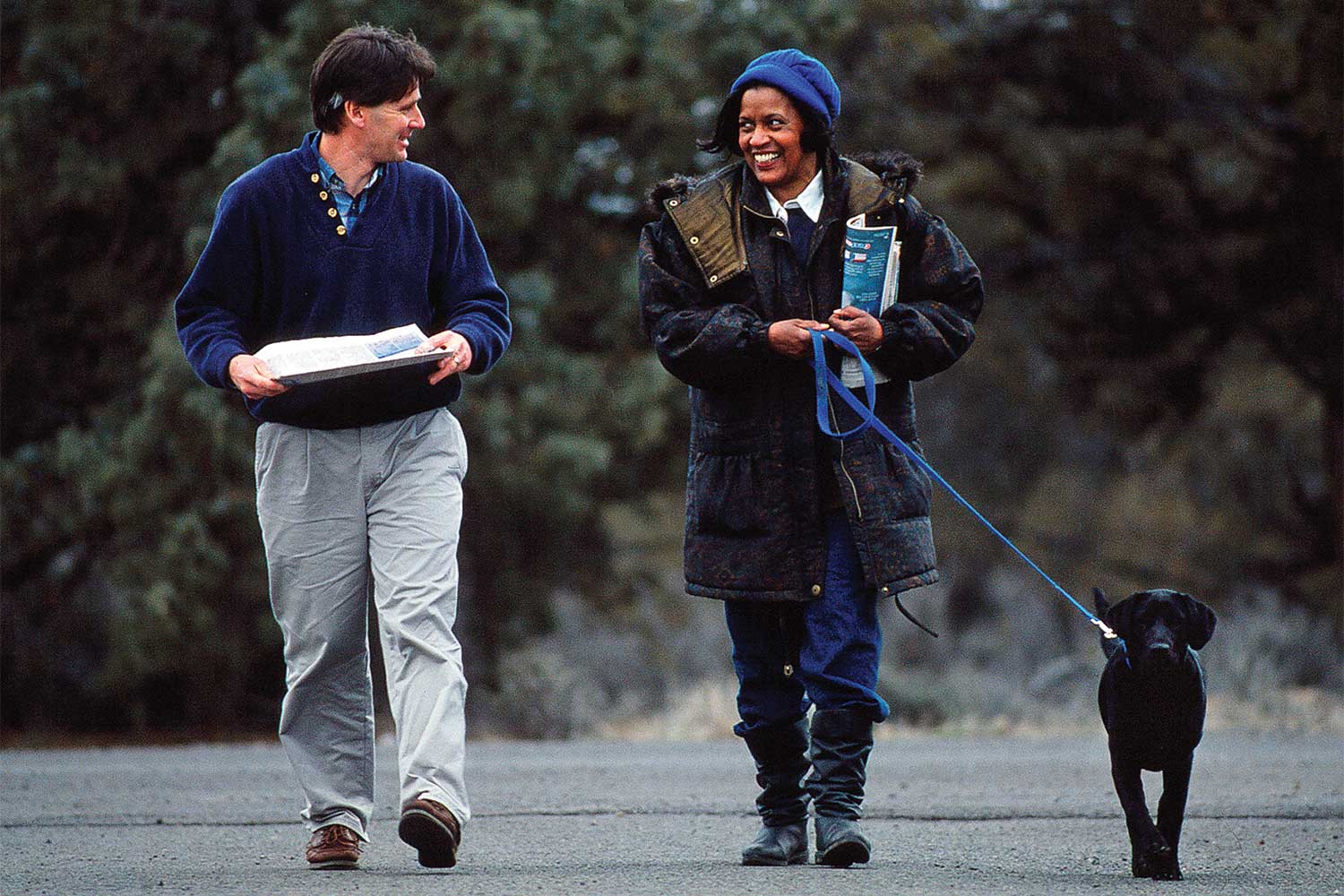
It’s a different media landscape than it was even 30 years ago, but the RG still exists today.
For all these people, working for the RG was like working with your family. The newsroom was the culture of the paper. “That camaraderie is really important,” Don Mack says. “That’s like walking into a family.”
He even met his wife at the paper, Ann Baker Mack, a member of the Baker family. “Ann was the only woman in the newsroom and the first assigned to a regular beat, covering Springfield city government,” Don Mack writes. “I was smitten.”
“I remember just being in this organization, where I was surrounded by people who bristled with talent and confidence and the good fortune of having managers who gave us our head a bit and let us pursue things and the talented people rose to the occasion,” Thoele says.
Stepping into the newsroom fresh out of college, the sounds of tele-type machines and typewriters still echo in the former reporter’s heads. Back in the day, they would have to retype everything into a word processing machine.
“We were telecommuters in the era when telecom meant teletype,” Thoele says. Even around all that noise and hard work, he says, the newsroom was the best kind of environment to work in. Lots of crosstalk in the bull pen, phones ringing, being picked up and slammed back down.
You could even smoke a cigarette at your desk. “My wife was a smoker at The Register Guard,” Mack says.
Spanning over 70 years of the paper’s history, the RG Golden Era Reunion took a long look back at the stories, memories and, most importantly, people who got their reporting chops in the RG newsroom and went on to accomplish incredible things.
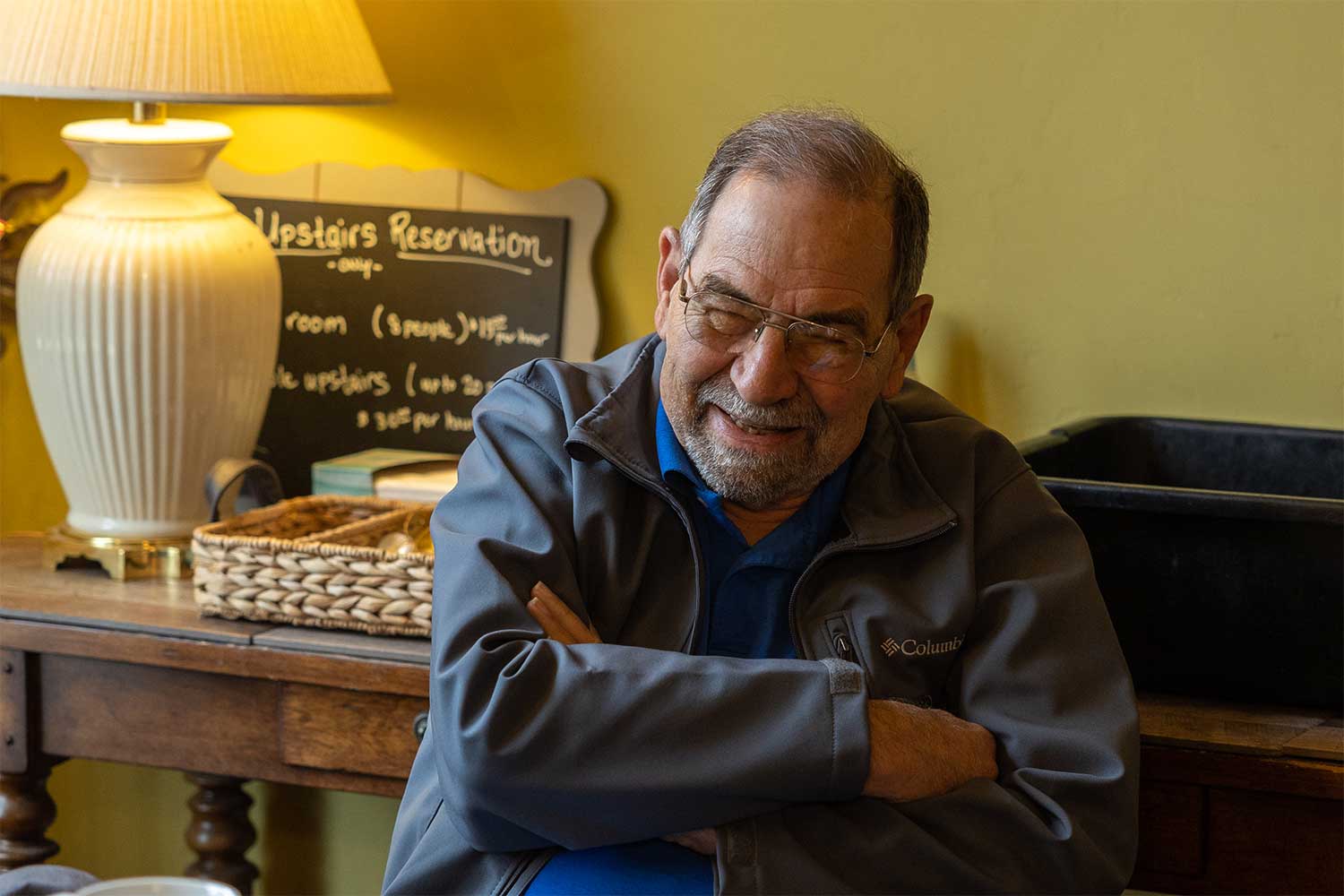
“We were having dinner one night and started telling more stories about our co-workers from back in the day,” Mike Thoele says.
“And then we started saying, ‘Wouldn’t it be great if we could get them together into a party?’ We were originally talking about a dozen people.”
“We thought at the most maybe 50 people,” Sandy Thoele says.
Walking through the doors on Chad Drive, it was evident that a family had just been reunited. Swapping war stories and looking back on good times, Don Mack said he hasn’t seen some of the folks attending in over 34 years.
“It was great to connect with one-time fellow reporters,” Mack writes in an email. “Aside from a few wrinkles and gray hair, they’re the same journalists we worked and partied with in the late 1970s.”
Some of the RG alumni came from halfway across the globe to be in Eugene for the party. Dan Root, a former staff photojournalist, traveled from New Zealand to reminisce about the RG with some old friends.
“We decided that rather than this be exclusive to one generation of reporters or two generations of reporters, we should make it as inclusive as possible,” Mack says. Everybody who has or is working for the RG was invited.
All the way from Dean Rea — who started working as a reporter in 1957 and held several editorial positions while there — to Hannarose McGuiness — who started covering growth and development at the paper after graduating from the University of Oregon in 2023 — people showed up and styled out to celebrate such a storied paper.
“We had it all set up. We were ready to go,” Mack says of planning the celebration. It just took one global pandemic to upend the planned March 2020 gathering.
“If the pandemic hadn’t happened, and it had been held in 2020, there are probably a half dozen people who would have been there that are no longer living,” he says.
Walking through the back entrance to the newspaper’s former office (still owned by the former RG ownership, the Baker family) and alongside framed copies of old issues dating back all the way to 1927 — a crowd gathered near the stairs in the front mezzanine and raised their glasses to all the RG alumni no longer with them.
After a moment of honoring the journalists who came before, Jacqui Banaszynski, another former RG reporter and a Pulitzer Prize winner, spoke to the expectant crowd ready to cling onto every word.
Banaszynski tells the crowd the story about when she wasn’t allowed into one of the oldest clubs in town, the Eugene Country Club, in the late 1970s. Not being allowed inside the club’s dining room because she’s a woman, “as most around the country were” — under deadline, Banaszynski told the club security “I’m not a woman, I’m a reporter.”
She was then escorted off of club property, with club security calling Alton F. “Bunky” Baker Jr., then-publisher of the RG, complaining about her presence.
However, Bunky Baker stood by his reporter. “They backed me!” Banaszynski wrote.
Banaszynski’s take-no-prisoners modus operandi is exactly the kind of attitude the RG cultivated. “There were no primadonnas. There were certainly quirky personalities, of course. But everybody was like, ‘sit down and do your job.’”
“I try to honor the qualities I learned here everyday, which are qualities of professionalism, of humanity, of commitment to the communities we serve,” she says.
The paper got its name in 1930, after a merger between the then Eugene Daily Guard and the Morning Register when Alton F. Baker Sr. purchased the two papers within a three-year period.
Banaszynski, a former professor at the school of journalism at the University of Missouri, says she fought her way into the industry to get the same beats as her male peers. “I came into the profession, there was one generation of women ahead of me who kicked down the doors,” she says. “You had to put up with a lot of inappropriate sexual behavior. You had to put up with a lot of hazing.”
But that didn’t stop her. She refused to be relegated to beats that weren’t hard news.
“Women, mostly I knew of my era, were not allowed to cover hard news beats. So they covered education. And I refused to do that,” she says.
“I didn’t want to sit there and do like, piddly-ass shit right? No, I wanted to go cover real stories.”
And real stories she covered. While at the St. Paul Pioneer Press Dispatch, Banaszynski won the Pulitzer Prize for Feature Writing in 1988 for her special report, “AIDS in the Heartland” about two gay farmers in Minnesota who passed away from AIDS.
Banaszynski is one of four former RG reporters who would win a Pulitzer in their careers, including Brent Walth, Brian Lanker and Doug Bates. “When you move through life, there are some places that are fleeting, some people who are fleeting, and then there are places with people who imprint on you,” Banaszynski said. “And the Guard is a place and it was full of people that imprinted on me.”
